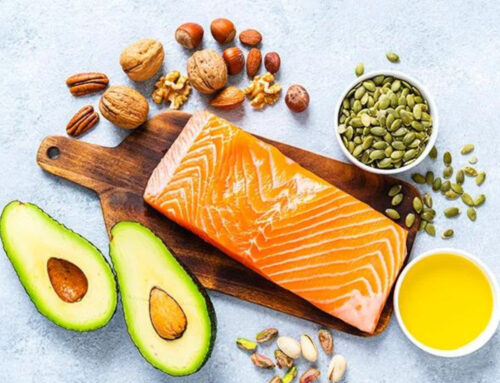You may have seen a recent study making headlines titled, Intermittent fasting doesn’t help you lose weight, claiming that “a 12-week UCSF study of 116 overweight people found no statistically significant difference in weight loss between people who restricted their eating to a specific eight-hour period every day and those who didn’t.”
This is not the first time fasting has been challenged.
Fasting is truly an art form, requiring a deep understanding of how fasting can be used as an effective health tool. So when articles like these come out, I like to dig deeper into the science and methods used by the researchers, to understand how they came to the conclusions they did.
Watch my full video where I talk about what is wrong with this study.
With this study, there are certainly several things that didn’t make sense to me, which I’ll go into below. In my own clinical experience, having fasted thousands of people, I have seen fasting used as an effective method of losing weight, amongst many other benefits…leading me to believe every doctor should be recommending intermittent fasting to their patients.
The purpose of intermittent fasting:
First, let’s think about the purpose of intermittent fasting? For me, the purpose of fasting is to move from being a sugar burner to a fat burner. The goal is to gain metabolic flexibility and in turn create metabolically fitness. Surprisingly (or maybe not so surprisingly), only 12% of people are actually metabolically fit. This means that most people are predominantly fat burners, burning carbs and sugar for fuel and energy, instead of fat. The opposite of metabolic fitness is “metabolic syndrome”, which is characterized by at least three of the five following medical conditions: abdominal obesity, high blood pressure, high blood sugar, high serum triglycerides, and low serum high-density lipoprotein. Metabolic syndrome is associated with the risk of developing cardiovascular disease and type 2 diabetes.
It is true that fasting is not a cure all. However, intermittent fasting is an effective tool that can be used to undo metabolic syndrome and inflammation, in other words addressing the underlying reasons why people are obese in the first place. In reviewing this study, here are some things I would have considered:
- How much stored sugar did the participants have?
When you’ve been living on a Standard American Diet of high sugar and high carbs, your blood sugar increases and your pancreas has to secrete insulin. When excess sugar begins to accumulate, the body ends up storing it in the liver and in fat. So what we don’t know is how much stored sugar the people in this study had. How long had they been obese?
- What were the participants’ toxic load?
Toxicity can be a major block to successful fasting results. Toxicity and inflammation block the receptor sites on our cells, making them unable to receive vital hormones and communication. How do we open cells up? Intermittent fasting is one of the most effective ways of inducing the cellular repair processes and removing waste material from cells. Toxicity is known to cause diabetes. Also toxicity will block detox pathways, making it more difficult for you to fast. - What was the health of the participant’s organs?
The study failed to look at how organs such as the liver, gut and pancreas are functioning? A congested liver can block a person’s ability to lose weight, and is a common reason why I see clients initially struggle to lose weight with starting a fasting lifestyle. However, once the liver and detox pathways are opened up using liver hacks like coffee enemas, caster oil packs and infrared sauna, we often see shifts in their health. - What was the health of participant’s gut microbiomes?
The gut microbiome has a massive impact on how you manage blood sugar, and the gut microbiome directly affects metabolism. Similarly, stress has an impact on blood sugar as well as people’s ability to fast successfully. - What was their diet like?
The study did not control what the people were eating. We know that what you eat is just as important as when you eat. The study should have paired fasting with diet changes. Using a ketogenic diet, specifically increasing good fats while decreasing bad fats, can make intermittent fasting more effective. - Did they vary their fasting window or length?
We use fasting variation with our clients, working between the 8 different types of fasts, to create a healing hormetic effect on the cells and mitochondria. The study here did not vary the fasting window or timeframe, sticking only to fasting 8pm-12pm which doesn’t always work for everyone and also sticking only to 16 hours of fasting, which for some people is not enough to initiate the desired hormetic effect that precedes health changes. This study suggests that an eating window earlier in the day might be more effective for some people. - Fasting can promote muscle growth, when done properly.
A lot of times when you put pressure on your body to adapt, there will be a minor decline before growth. However, muscle building is possible with fasting, using protein cycling and strength training. If you’re hoping to build muscle while fasting, watch Part 1 and Part 2 of my videos on muscle building. - Fasting differences between genders
Women should fast differently than men. Not only should women be fasting around their cycle, but women over 40, in perimenopause or menopause years, should fast in a very specific way in order for fasting to support (and not derail) healthy hormone levels.
Overall, here was my take-away’s from this study:
- Intermittent fasting is the door into weight loss, it is not the house.
- The goal should be metabolic fitness, not the number you see on the scale. Just because in this study fasting was not effective for these people in losing weight, it doesn’t necessarily mean the people gained no health benefits.
Some people need more than just intermittent fasting in order to become metabolically flexible. There is A LOT you can do to troubleshoot why you’re not getting results with intermittent fasting.
Don’t fall prey to sensational headlines, experience fasting for yourself and apply the techniques I teach to create a successful fasting lifestyle.
RESOURCES
- Reset Academy: https://resetacademy.drmindypelz.com
- Dr. Mindy’s Facebook Page: https://www.facebook.com/drmindypelz
- Dr. Mindy’s Facebook Group: http://bit.ly/Resetters











Hi I’m looking to lose very stubborn fat which I can’t shift. I’m going to try the 36 hour fast.
So from what I can gather as long as I feel ok. 36 hour fast, then 12 hour feast. Then back to 36 hour fast and repeat. So this is ok to keep up as long as I feel ok?
Any help I would be grateful thanks
I am keen to know your views regarding the findings of the American Heart Association study regarding intermittent fasting increasing the risk of heart disease. My wife and I have been on the 7-17 diet for the past 9-10 months and are wondering if we should stop. Please advise.